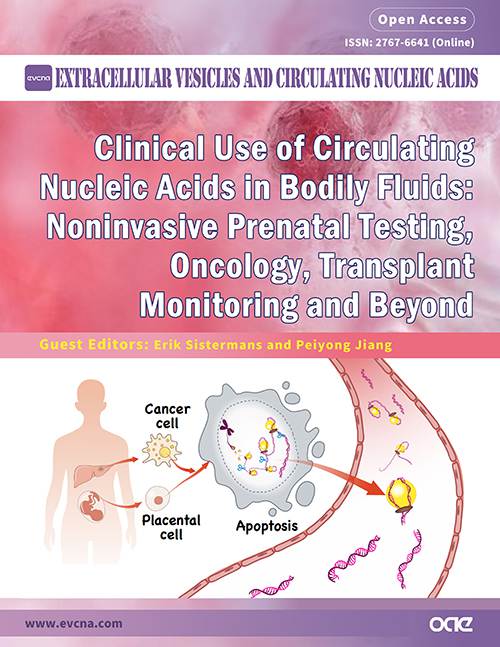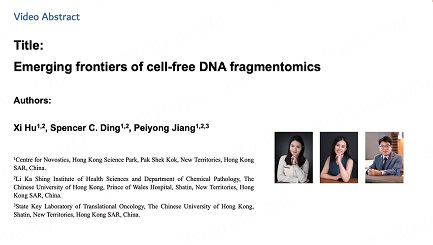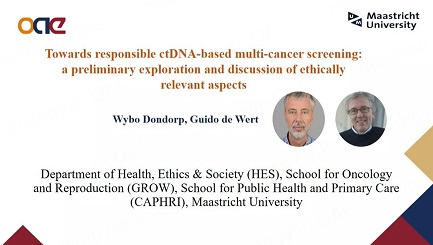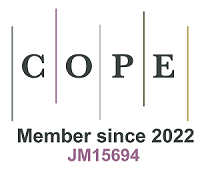
Topic: Clinical Use of Circulating Nucleic Acids in Bodily Fluids: Noninvasive Prenatal Testing, Oncology, Transplant Monitoring and Beyond
A Special Issue of Extracellular Vesicles and Circulating Nucleic Acids
ISSN 2767-6641 (Online)
Submission deadline: 1 May 2022
Guest Editor(s)
Erik Sistermans
Professor, Department of Clinical Genetics, Amsterdam University Medical Center, Amsterdam, the Netherlands.
Special Issue Introduction
The discovery of circulating cell-free fetal DNA in maternal plasma has made a paradigm shift in noninvasive prenatal testing (NIPT), rapidly being translated into clinical practices worldwide, for example, cell-free DNA(cfDNA) based fetal chromosomal aneuploidy detection and diagnosis of monogenic diseases. Recently, many efforts have been made in expanding the success of cfDNA-based NIPT to different clinical scenarios, such as oncology and organ transplantation. CfDNA is illustrated to be non-randomly fragmented and released from multiple tissues within the body. Genetics, epigenetics, and fragmentomics of cfDNA open up many possibilities for developing novel diagnostic tools. For instance, the use of genetics of cfDNA allows for noninvasive prenatal testing for signal gene disorders such as cystic fibrosis, alpha- and beta-thalassemias, sickle cell anemia, fragile X syndrome, etc. The use of epigenetics of cfDNA (e.g., DNA methylation) is an important means for deciphering the tissues of origin of cfDNA. The fragmentomics of cfDNA, such as fragment sizes, endpoints, end motifs, jagged ends, and nucleosome profiles, is an emergent area for clinical biomarker development.
This Special Issue aims to cover cfDNA-related research articles, reviews, and perspectives, including but not limited to the topics highlighted below:
● Noninvasive prenatal testing;
● Cancer detection and monitoring;
● Organ transplant monitoring;
● Organ damage assessment (e.g., trauma, and autoimmune diseases).
This Special Issue aims to cover cfDNA-related research articles, reviews, and perspectives, including but not limited to the topics highlighted below:
● Noninvasive prenatal testing;
● Cancer detection and monitoring;
● Organ transplant monitoring;
● Organ damage assessment (e.g., trauma, and autoimmune diseases).
Submission Deadline
1 May 2022
Submission Information
For Author Instructions, please refer to https://www.oaepublish.com/evcna/author_instructions
For Online Submission, please login at https://oaemesas.com/login?JournalId=evcna&SpecialIssueId=803
Submission Deadline: 1 May 2022
Contacts: Margie Ma, Managing Editor, margie@oaepublish.com








